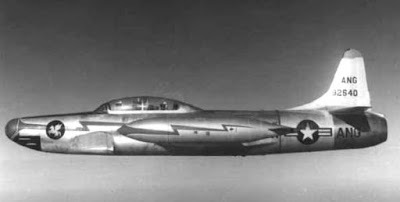Tim Capps's Blog, page 3
August 4, 2017
Pecksley, Sucklow & Miss Dank: CIA
 "Sicut Corvus Volat"The CIA could not function without those underappreciated veterans who know their way around all the forms. It is also helpful to have someone who remembers where all the bodies are buried. The CIA generates quite a few each month.
"Sicut Corvus Volat"The CIA could not function without those underappreciated veterans who know their way around all the forms. It is also helpful to have someone who remembers where all the bodies are buried. The CIA generates quite a few each month.I am speaking of the secretaries.
Mission Controller Pecksley bears responsibility for each of Red's 28-day crow-borne missions. He must rely on his assistant, Tech-23 (later "Sucklow") to interpret a few hundred biological markers that comprise his field agent's telemetry feed.
(This is not hard science fiction, so just roll with it. I'm a lawyer. I don't know much science, and still less about the CIA, but no one knows more about American Hell.)
Pecksley cannot, however, do anything with Sucklow's information. There is no way of communicating with his agent in the field. He is a helpless bystander trying to divine his own fate from the Delphic mutterings of his teletech. The best he can do is remember to hold onto his tail so it does not betray his nervousness. It's just another day in American Hell, if American Hell had days. Or nights.
Here, Sucklow begins his very first mission as so-called "Deputy Controller with operational authority in the field." It is off the books, domestic, and therefore, illegal, and he has no training for this sort of thing. The agent he is supposedly supervising has been... let's say "unpredictable." He has just been given his name. It will look nice on his government-issue grave marker if he fails.
It is only through the sure assistance of Miss Dank that his mission begins at all. When their first GSA sedan won't start, it is Miss Dank to the rescue. From the sequel to Judging Angels, the untitled Book 2 in the Rubricatae Chronicles. (Drop by and read the unbroken string of five-star reviews.)
Two hours later, Miss Dank arrived with a cigarette dangling from the corner of her mouth. She had managed to preserve an impressive length of ash. She had a stack of forms and a handful of black ink pens marked “U.S. Government.”
She would slide a form across the table, point, and say either “initial,” or “signature.” Even as she retrieved a signed form with her left hand, she was sliding another across the table with her right. When an ink pen failed, she would snatch it from his hand and hurl it against the wall while offering a new one with the other hand.
Her moves were like a clockwork fortuneteller in an arcade smoking a magical cigarette with ash that never dropped.
“What are all these forms I’m signing, Miss Dank?”
“Initial,” she replied.
As he looked down at her finger, sweat trickled into his eye. He reached for his pocket patch.
“No, Dr. Sucklow. Pocket handkerchief.”
Allow me to take a moment to salute all the knowledgeable and hardworking secretaries. Even Hell can't operate without them.
Published on August 04, 2017 16:56
August 1, 2017
Major Author Update on Judging Angels Sequel
 Red Announces a MilestoneMilestone: 83,000 Words
Red Announces a MilestoneMilestone: 83,000 WordsUPDATE: 4000 words written today, or one entire chapter.
I am pleased to join Red in announcing a milestone in writing the second book in the Rubricatae Chronicles, which began with the award-winning Catholic-ish urban fantasy novel Judging Angels.
The sequel now has 83,000 words, or about the typical length of a novel. Judging angels had twice that. In other words, if the sequel were to be the same length as Judging Angels, it would be halfway done.
The deadline for Christmas release is October 1st. I'm doing my best.
I am projecting a book about two-thirds the length of Judging Angels.
How will it be different from Judging Angels?
Less of a Stand Alone Novel
It is unlikely to be as much of a stand alone book as Judging Angels is.
While the possibility for a sequel was obviously left open, that story was properly ended, and the characters had arrived at wherever their trajectory naturally took them within that story. In other words, you could finish Judging Angels, and lay it down having read a single adventure from beginning to end and followed the character arcs to a reasonable end within that story. The themes I wished to explore got explored to my satisfaction.
The sequel - Book 2 in the Rubricatae Chronicles - is more complex, introducing two new sets of characters and expanding much on a setting only hinted about in the first book. I think this will be a real treat for those who enjoy a richly realized, original fantasy world that offers some mordantly humorous commentary on our own.
One bit of advice: Please don't think "angels," "demons" and "humans" and imagine a Young Adult romance series. While it's impossible to keep up with publishing these days, I don't think there's much like it out there. These are books for grownups, where themes and character development is at least as important as story. No cosmic beings debating whether to give up their wings or horns for the love of a mortal maid or man. I am not criticizing, rather, distinguishing. No doubt, I would be surprised at the quality from writers in that genre today.
This just isn't that.
Is there romance? Oh yes. But where it happens, it is less rapturous than problematical, and everyone is on a war footing anyway. If I had to summarize, I would say the romance is not the story, but is one of the means by which characters are developed and themes explored. It was essential in Judging Angels for reasons that will be obvious to the readers of that book.
Where the focus of Judging Angels remained on the plucky Able family, the sequel pulls back to reveal their adventures in the context of a web of sinister plots.
It tells three stories, each taking up about a third of the novel, and all three colliding two-thirds of the way through the whole. This is why the sequel will not be a stand alone novel like thpe first one was. To bring all three stories and their characters to a satisfying ending point would require a book longer even than Judging Angels.
This one will not be longer than Judging Angels! In fact, it will probably be shorter. At least one more book will be needed to wrap up the Rubricatae Chronicles. I am full of ideas for characters old and new, and the Judging Angels universe is as interesting and roomy as an old Victorian mansion. I love writing about my characters, even while I am not above killing them off unexpectedly or otherwise abusing them for the entertainment of the masses.
Three Story Lines, Three Sets of Characters, Two Settings
The timeline picks up three weeks after the last page of Judging Angels and quickly answers a few leftover questions. The first third of the book takes place in just one action-packed week. A couple of old characters are reintroduced (and reunited), a couple of minor characters are promoted to major ones, and some new, memorable, ones are introduced. Best of all, the setting is the original, mordantly humorous, cockeyed version of our world barely introduced in the first book.
The second story line flashes back to the timeline and setting of the previous novel, but shows other important, related events going on among other characters at the same time the plucky Able family is on their adventure. Behind everything seems to be a well-known and unlikely officer of the Federal Government known historically more for gaffes than ambitious plots with sketchy visitors of dubious origin.
And now a word from our sponsor. Feeling anxious, annoyed with other people, are just off your feed? Ask your doctor if Adapt is right for you.
 A pill that pretty has to be good for you.
A pill that pretty has to be good for you.The third story line is the one readers will be waiting for, even as they get sucked into the first two. One week after the beginning of the new book, three weeks after the end of Judging Angels, and after a significant flashback to a bigger story running parallel with the Judging Angels story, the hands of three clocks tick to midnight, and all three story lines collide in the present.
The cast of characters in Judging Angels - of which we have so far seen only a couple - must join forces again to meet even greater threats. They do not start in the best positions, as you might imagine, given the mayhem they left behind them. Someone's got to be executed for a massacre of historic proportions. Andy and Black are in jail for murder. They gain new allies, but can they be trusted? And can they make up for the absence of a couple of Team Sandy MVPs from the first book? Alice finds herself under suspicion, pregnant and alone. George is strongly presumed drowned, his body being carried down the Mississippi River.
If the first book was a cozy little family crime drama, the second book promises to change everything. (I mean everything. Do you understand what "everything" means? No, you only think you do. More "everything." No, more. Now you're starting to get close.)
Not Even as "Catholic" as Judging Angels
Judging Angels was marketed as a "Catholic novel," and I suppose that's fair enough, although it does not rely on the usual Catholic tropes, and there's not a model Catholic to be found among the characters. One of the biggest problems the characters face in Judging Angels is that no one takes the supernaturally seriously enough to offer advice - not even the Church.
Judging Angels does deal intelligently and realistically with "Catholic" (really, universal) themes of temptation. It has very few Catholic elements for a "Catholic novel," and was always intended as a book for anyone, although educated Catholics might recognize a few more references. There are a few lines meant to recall current controversies in the Church, but they are characters to understanding or enjoying the book. (There is also quite a bit of lore about the tarot - used by the bad guys - that might a be fun game for someone familiar with it, but others won't miss much.)
The sequel will be even less of a "Catholic novel," and more of a straight urban fantasy novel that deals with important themes from a perspective that is congenial to Catholic teaching, but not explicitly based upon it.
Not to put too fine a point on it, but in the publishing business, the "Amish pregnancy genre" is more popular than the "Catholic novel." The gatekeepers of Catholic culture are few, and have little tolerance for Catholic literature whose purpose is not to promote the friendly parish priest as the answer to all the characters' problems. Personally, I think I wrote a great book for Catholics, that was respectful, but at the same time showed a snapshot of the current Church when she's not at her best. My characters are wounded, lost and groping for truth. In other words, pretty much like most of us.
I can reasonably hope that if Catholics enjoyed Judging Angels, they should find the same reasons to enjoy Book 2
Conclusion
Book 2 has to fill an author with dread. I've got a full head of steam up and am cruising through the icebergs at 25 knots. I am pretty sure I know where I'm going, and the passengers seemed to enjoy the first part of the voyage. And yet, it isn't Judging Angels again. I took risks in JA, and I'm taking even more risks in this one. It's the only way I can write: to commit without reservation to my personal visio, no matter how silly it sounds when I try to explain various things to people.
If you liked 16-can-pass-for-18 Brian, you can watch him try to overcome his psychopathic upbringing and deal with his premature exposure to murder and magical redheads. I think you'll like the kid, though, as he frequently teams up with Pecksley's assistant, now now as Dr. Sucklow. he may yet have an unprecedented role in "changing everything.
Pleasure in language is something I hope shines through all of my writing, whether on St. Corbinian's Bear's ephemeris or my long fiction. The Judging Angels that was published was the result of a ridiculous amount of editing and rewriting. Years.
It was my first.
This one benefits from a surer hand on the reins, unless I've deluded myself. I'm liking the broader canvas for my Boschian details and a collection of different and fascinating characters I can't wait to introduce you to. Including many more Reds. Because you haven't seen envy and backstabbing until you've seen envy and backstabbing in a family of red-headed sisters.
Published on August 01, 2017 20:52
July 29, 2017
Word Cloud from Reviews

All the words reviewers have used to describe Judging Angels in a word cloud. (All reviews have been 5-star.) Keep in mind some particulars can be misleading, such as "heavy-handed" without the "not." Still, it's a fun way of seeing at a glance what readers have found to say. "Ginger Rogers?" Fair enough.
Published on July 29, 2017 08:46
Thank You (Ported From the Bear)
 Since the Bear's appeal for reviews of Judging Angels, there have been four five brand new five-star reviews, with promises of more. Reviews are, as the Bear has said, ridiculously important because they are like "leveling up" in a video game. New powers like "recommendations" are unlocked, all based on the number of reviews. Twenty-five is the Bear's target. Not so many, really, from 13, if you decide to do it today, before you forget about it.
Since the Bear's appeal for reviews of Judging Angels, there have been four five brand new five-star reviews, with promises of more. Reviews are, as the Bear has said, ridiculously important because they are like "leveling up" in a video game. New powers like "recommendations" are unlocked, all based on the number of reviews. Twenty-five is the Bear's target. Not so many, really, from 13, if you decide to do it today, before you forget about it.It's easy. Pick a number of stars and write a sentence or two (or more, of course, if you're into that sort of thing).
Poor Bear Briefly Snivels
In other words, a book goes nowhere without reviews and Judging Angels is poison to mainstream Catholic media. You would think they would welcome a serious, well-written defense of holy matrimony that avoided moralizing and wrapped it in an entertaining yarn with real-life lessons. Sure, it's from "the other side" of the issue, showing people who aren't doing a very good job, but that is part of the lesson, and makes it more useful, the Bear believes, than a story about super-Catholics in the heyday of the Church.
Is it the Bear, or is it the absence of a super Francis-priest character who swoops in with a copy of Amorous Laetitia in one hand and the cover of the Rolling Stone in the other?
Possible Angle for Book 2 in the Rubricatae Chronicles
Maybe George and Alice just aren't compatible, and would be happier with other partners.The kind priest could wangle an annulment.
Maybe they'll just agree to call it quits in Book 2 and the Bear could show how understanding the Church is today by having them be welcomed back to communion with their new spouses, smiling pleasantly at each other while one stands in line for the priest and the other for the Extraordinary Eucharistic Ministrix of of Holy Communion.
"You remember my ex-wife, Alice, don't you, Red?"
"Alisss, how could I ever forget that lying little snake," hisses Red.
"Richard, this is my ex-husband George. You remember him, or at least his brain. He's getting Sandy - who's Sandy? The little girl you bought the pony for, silly! Anyway he'll have her for the whole week, so we can fly away for that romantic escape to Paris we talked about. All right, I talked about. That's right, isn't it, George? You do have Sandy, don't you?"
"Sandy? I thought you had her! Where is she?"
Brian (running into the church, panting) "Mom, Dad, Sandy's gone. I think she's been kidnapped."
All laugh.
"No, guys, I'm serious!"
"Well. That's. Just. Fine," spits Alice as she grabs a host. "So much for Paris."
"Excellent," Red says, lifting her skirt and pulling a knife from its thigh sheath, riveting the attention of all the men. "Anything for Sandy, right Brian?"
"You got it mom, er, sis, er whatever. Anything for Sandy."
The priest shakes his head fondly. "Those crazy Ables. Count me out of any nutty supernatural stuff, though."
The sequel will cover moral themes, too, but Catholicism will be deep background this time. Bear would be silly to write another "Catholic novel" if he's just going to be blacklisted again. It's like Bruno all over again (+ 2006).
Everything Working in Synergy?
 Bear's Driver, Bodyguard,
Bear's Driver, Bodyguard,Factotum, and lawfully
wedded wife,
Red Death.Anyway, if there's a correlation between reviews and this ephemeris, the Bear may have to rethink this whole hibernation thing, although a slowdown, at least, is necessary.
Is the Bear holding the ephemeris hostage in the crudest manner possible? Oh, let's not call it that. Merely reassessing synergistic effects among media. It only makes sense that if ephemeris readers are picking up where mainstream Catholic media has dropped the ball, there might be a powerful justification for continuing with the ephemeris.
So thank you for your efforts, and the Bear looks forward to more. The sequel is more finished than not, and the goal for submission is October 1st, so it can be out in time for Christmas. Bears have trouble with arbitrary constructs like "deadlines," however.
That is Bear's anniversary, too. 41 years married to Red Death with four wonderful, healthy children. Happy years, at least for the Bear. The Bear gives her all the credit. It isn't easy living with a Bear. (There's got to be a song in there, somewhere.) Especially not while being dragged halfway around the world and dumped on the side of an erupting Mt. Etna with four small children while Bear goes frolicking off to places like Toulon, Crete, Israel and two long Persian Gulf visits.
Published on July 29, 2017 08:19
July 19, 2017
Thanks! Unbroken 5* Reviews Continue
Published on July 19, 2017 01:27
July 15, 2017
Exposition - The Thing Everyone Who Writes About Writing Loves to Hate
 The best-known example of exposition - the Star Wars crawl - here spoofed in Spaceballs.
The best-known example of exposition - the Star Wars crawl - here spoofed in Spaceballs.I share my drafts with my driver, bodyguard, and factotum, Red Death, who is also my lawfully wedded wife. Sometimes it is frustrating. She puts up with it, though, as she does with all of my idiosyncrasies, and is a good sport about cleaning up my crime scenes.
Or...
------------
The clatter of the typewriter stopped. Home was uncovered by the silence.
There was a pot of soup on the stove. The dog warned of someone walking past the house, putting all six pounds of terrier into it. He could hear his wife singing a tune he did not recognize; she sang only to herself.
He rubbed his eyes. Loss of signal. He remembered the tension when, as a child watching the end of a space mission on television, mission control would announce 'loss of signal' during reentry. Minutes passed, then at last the voice would come from the Gemini capsule, or the Apollo.
They were back. They went places in those days, before it was routine, before it was forgotten until everyone learned what o-rings were.
Reentry. Houston, Alan Wilcox is returning to earth.
He went down the stairs. The drogue chute of consciousness fluttered in reality, tugged at the main parachutes, then- the jerk. We have three chutes deployed.
He descended into the dining room. Splashdown!
"I'm sorry, but I'm out of paper. I'm low on carbon paper, too. I'm sorry to bother you, but I do need a ride into town. That's pretty."
His wife was at her loom, eyes soft, mind somewhere else, the trace of a smile on her lips. She sighed, and her soft eyes closed, but the smile remained. When she opened her eyes, she, too, had returned.
"Sure. We need another case of bleach, anyway. Do you remember where you put your hat?"
"Mally has my hat, I think. I'm not sure, though."
He was caught in the evening sunlight playing on her red hair through the window. After so many years, it still filled him with wonder. The eye of the beholder was kind. He wanted to say something, but could not see the old Underwood hammering out the words: black ink transferred from mind to keys to ribbon to pure white paper.
She disappeared for a moment, but not before the simple cotton dress revealed her actual figure as he was greeted by frogmen, smiled and waved for the cameras, and was winched up into the helicopter and bright sunlight that was golden, not red. Recovery. His feet were on the deck, legs a bit wobbly perhaps, but-
She returned with the hat. It was a dressy black straw hat with a narrow brim, a gray band, and a piece of aluminum foil peeking out.
"Mally's a character in your story. Your hat was on the gun cabinet again. You can find your own shoes." She was still smiling, almost, and her tone was not scolding or tired.
Where is she? he wondered. Resignation? Pity? Amusement?
"Fondness," he announced.
"Fond," she answered. "That's a nice word. You don't hear it much now. I think that's a shame. Are you ready?"
"Loyal," he added.
"Trustworthy, kind, brave, clean, and reverent," she recited.
He put on the hat and presented himself for inspection. She looked up and fussed with it for a moment. "There. Just a hat. So, what was Mally doing with your hat, anyway?"
"He finds it in the Praesidium. He's -"
"What's the Praesidium?"
"You don't need to know that yet. It's like 'bunny snuggler.' I don't always explain everything right away. Sometimes things are just part of a world and evoke a mood even if they aren't explained."
"The light's green," he told his wife. Mally was waiting in the office of the Reservation Police chief now. He was telling it all to her as she drove. Need to know. Later. It's not important. "It's just part of the setting. It tells the reader she's not in this world."
"I think if you bring it up, you ought to explain it," she said.
"Good. See, you're curious. You'll turn the page."
"I don't know. I might just get frustrated."
"Maybe other people will be more patient. It'll read better than it sounds."
He went on, painting the scene, telling the story. It's better on paper. By the time they pulled into the Staples lot, the only sound for many minutes had been the dull noise of traffic through the windows and over the fan of the air conditioning. There was no sunlight at all inside the car, although the eye was satisfied by whatever was left that filled and warmed the space around them.
"Don't forget the carbon paper."
"They don't sell carbon paper anymore, remember?'
"No. Sorry."
"Don't worry. I order it online. We have carbon paper at home, okay?"
"Thanks. Hey. Be careful in there."
"Mally needs to be careful. Can you remember bleach and scrub brushes? The shovel's disappeared. I guess Mally has that, too. We'll need to buy another one. Write it down in your notebook. This won't take long. On second thought, don't write any of that down. We all need to be careful."
------------
The reader needs to know the character is a nutty writer who is old enough to remember the early days of spaceflight. His wife is fond of him, and used to compensating for his lack of grounding in reality. There are dark hints that a character might be intruding into their lives in a very unwelcome manner.
Heh, good thing this is only fiction, right?
The reader does not need to know why he uses a manual typewriter instead of a computer, or puts aluminum foil in his hat, or does not drive. Maybe later, or maybe some things will just be left to the imagination as we get down to telling the story.
But, we already are telling the story. It is all exposition, but revealing without telling. Metaphoric interior dialogue is used extensively, repeated imagery ties it together, punctuated by real observations and actual dialogue. It is almost a short story in itself.
Exposition is especially tricky when you are creating an original world. The reader of a traditional fantasy is equipped for the expedition. Swords, sorcery, brave kings, weaselly nobles, all in a medieval European setting. Urban fantasy, however, often throws the reader into a world without map or gear.
I feel reluctant to use my own work as an example. Think, instead, of American Gods by Neil Gaiman. You are learning about a new world along with a character. It evolves in complexity and maybe you get all of it right away and maybe you don't. The trick is, he skillfully weaves an original world that overlaps and threatens to invade our own into the story. In fact, Clive Barker's "Weaveworld" is another good example of an original urban fantasy world.
No, I don't always explain everything when I introduce it. Yes, exposition is different from the story, and eats up my precious word count. If you write, though, you're going to use exposition whether you like it or not. It is not a dirty word. I try to make it do double duty. The words build the world slowly even as they reveal character, perhaps, or provide some local color, or humor after a heavy scene.
Okay, I will use some of my own work as an example, but only because it's handy.
------------
“Ronald Reagan was president. I remember the Falklands War between Britain and Argentina. Crazy thing over a rock in the south Atlantic nobody had ever heard of. Britain was on the ropes until a nuclear sub finally showed up. Atomic-powered.”
“I know what ‘nuclear’ means,” she said indignantly, then smiled. “Did you know someone once told me I was 14 billion years old? Funny, I’m not sure I remember all that.”
“You don’t look a day over 25.”
“And I never will. And you don’t look a day over 35. And you never will.”
He sang the line again, as if it troubled him. He swung his legs over the side of the bed and groped across the nightstand, unable to take his eyes off the vision in black and white that had been out of his bed no longer than it took for the sweat to dry. Now she was pulling up a short black skirt that was tight across the rear, but had pleats to allow freedom of movement. He did not know if the wriggle was necessary or for his benefit.
“Cigarette?” he offered.
She put on a white blouse and stepped before the mirror to knot a red silk tie, then buttoned up a tight black jacket that left just a bit of white collar and a splash of red visible at her throat. Even that she covered by a brass throat piece hanging from two chains and bearing a red disk with a single word in gold: OPTIMAE. The best.
He took note of the lines of ribbons surmounted by her silver jump wings. There were three tiny gold stars on one plain white ribbon. His mood was not improved by noticing them.
She tugged at the bottom of her jacket, ran her fingers through red hair whose loose curls defeated the damp, and turned to face him with her hands on her hips. “How do I look?” Her long eyelashes dropped and she nodded at his silver cigarette case on the nightstand.
He flipped the lid of a Zippo, thumbed a flame and lit two. It made a louder, hollow click when he closed it. “Bad habit I picked up here. I should quit. I need to get back in shape,” he said as he handed her one.
“There’s no such thing as a bad habit here, baby. Just repeating a mistake.” The words came shaped with smoke from full red lips. She never wore any makeup as far as he knew, yet her cheek had just the right amount of blush and her lips were red and glossy. “Your shape is fine. Although in all seriousness, you do need to train with your weapon. You have a way of making an enemy for every friend.”
“And every one of my friends is worth a hundred enemies. They’re just jealous.”
“Connor, I’m serious. And technically it’s ‘envy’ and do not underestimate it. We don’t. Now answer my question.”
“What question?”
She bent down and gave him a lingering kiss; now she tasted like smoke. “How do I look?”
“You look great, of course. And like a Nazi.”
She stood up straight. “Don’t be insulting. I fought Nazis. Here’s my World War II Victory ribbon. This, you may recognize as the Purple Heart ribbon. Silver Star. Shall I go on? Your airplane fell apart over Romania, wasn’t it? That was the way you told it last time you were drunk.”
“I seem to remember a few North Vietnamese MiGs before that, but what the Hell, right? I might have had a silver star. Sorry, but I doubt my ex kept my awards as cherished mementos of husband number three. So you win the gong show. Want a drink?”
------------
Some dialogue between two lovers, is all.
And yet, it reveals a man caught between memories of one world and a new life in a similar, but very strange world.
First, here is about as close as we get to straight exposition: "She never wore any makeup as far as he knew, yet her cheek had just the right amount of blush and her lips were red and glossy."
Yet even that is couched as something being noticed by a character in the moment.
When did he arrive? (Evidently the '80s.) What does the military uniform say about the culture, the place of women? What are the implications of a 25 year old (or is it 14 billion year old?) woman with WWII ribbons on her uniform talking to a Vietnam War veteran pilot?
Is Connor satisfied with his place here? What do you make out of the pedantic distinction between jealousy and the sin of envy and who is the "we" who take it seriously? Are the two lovers on the same wavelength? Do you sense happiness in their future or trouble? Does a "splash of red at her throat" forebode danger or sound like just a smart accessory?
The full scene is peppered with anachronisms: (the Zippo lighter; heck, even the traditional post-coital cigarette looks pretty odd these days); a phonograph playing LPs; "fully fashioned lingerie;" a casual comment on paleness.
"I think white is beautiful," she says. That jars on the modern ear, and speaks volumes about the differences between this world and our own. Not so much outright white supremacy as culpable insensitivity. Where would that be dropped in polite conversation nowadays?
I am doing all sorts of things, but it is almost all exposition disguised as an off-kilter dialogue revealing underlying tensions and unveiling an alternate history setting filled with ageless people, some of whom are not natives.
The thing I don't want is for some smart reader to say, "Hey, that's exposition. According to the internet, this guy's a lousy writer."
EDIT: Next: The Importance of Careful Proofreading (Eh, what can I say? My blogs tend to be a proofreading-free zone. I'm not good at it and I do have another novel to finish. So laugh, if you must, at the writer who posts typo-ridden posts about writing. As Cormac McCarthy said, "Typos are the hobgoblin of little minds." Or Emerson. I always get those two confused.)
Published on July 15, 2017 12:09
July 14, 2017
Rubricatae Chronicles Word of the Day
The vast universe of the Rubricatae Chronicles (sorry, GoT, the Judging Angels series is too big for just one world) has its own rich vocabulary. To assist readers, Hermes Pharmaceuticals, maker of the drug Adapt, bring you The Word of the Day. Ask your doctor if Adapt is right for you. "For when there's nothing wrong - with you."




Published on July 14, 2017 15:27
July 11, 2017
FIXED: Truth About 1952 UFOs Over D.C.
 F-94 Jet Interceptor, called "Starfire" after the "C" model was introduced.
F-94 Jet Interceptor, called "Starfire" after the "C" model was introduced.Eventually the name was applied to all models, including the F-94B.
It was the first U.S. "all-weather" fighter and the backbone of
the nation's bomber defense in the early '50s.
Chapter 0: The Night Before the Day the Earth Stood Still
“War in Korea and here we are chasing little green men.”
That was the last thing Caveman heard from his wingman, Trigger, before they each jogged to the hanger for his own fighter jet. He had said something expected and serious to set the right tone but felt the same.
“You got her ready for the dance, Airman Wells?”
Wells was colored but took good care of his airplane. Caveman had come back from the war with no patience for anyone who judged the worth of a person by his race. A bunch of mutts had conquered the Aryan supermen of Hitler.
“Yes sir. She’s ready for anything.”
Caveman chuckled under his breath. “Guess we’ll find out.”
He had already begun a quick walk-around inspection. He trusted Airman Wells and did not expect to find any problems. It was a ritual exchange of responsibility.
He always used this time to reminded himself that his new baby was thirsty. She ran through fuel and ammo faster than his last wife ran through gin and cash. Faster than his P-47 Thunderbolt, affectionately known as the “Jug,” had in the skies over Europe. He missed the old girl. The Jug, not his ex.
The illuminated F-94B was not pretty, but his Jug had not won any beauty contests either. He seemed fated to be married to ugly ass-kicking brutes.
She was a long, lean, boat-nosed, two-seat jet interceptor with straight wings and fuel tanks on the tips. She was also the first American all-weather fighter, boasting her very own on-board radar and a magical Instrument Landing System that promised final approaches without the pilot even seeing the runway. Caveman did not know what to think about that but there was a fun new feature his Jug could only dream about. He could dump jet fuel into the tailpipe and rocket forward with an impressive 6000 pounds of thrust.
A new trick Mr. Lockheed called an “afterburner.”
The F-94 was designed to intercept Soviet bombers flying in from over the pole. Caveman knew her legs were too short and she lacked a heavyweight punch for that mission, but this was the jet age. In no time at all American designers and industry would provide something better. The F-94s would become Air National Guard hand-me-downs, then go the way of the Jug. Even so, the new airplane had earned the trust of Caveman and he was looking forward to testing his ship - and himself - against the spooks.
Major Clark Ruffler knew he was not much to look at, either. He had a compact build made to fit into a cockpit. The frame beneath his drab dark green flight suit looked like it had been cobbled together from spare parts. He had a barrel chest, long arms, but legs that seemed disproportionately short. His eyebrows met over the bridge of his nose.
The call sign was inevitable.
“Caveman” was painted under his name beneath the front of the canopy.
Behind, where his radar operator performed his voodoo, “Lt. Harold Brown” had “Brownie” painted below his name. His habit of taking home movies with a wind-up Kodak coupled with his name made his call sign inevitable, too.
“You didn’t short Ma Deuce any ammo, did you, Airman Wells?”
“No, sir. Four Browning M3s, 300 rounds each with tracers.”
Brownie made the sound of a man wanting someone else to know he was biting his tongue. Tracers allowed the pilot to watch his stream of bullets and adjust his aim. It also advertised his presence. Radar was supposed to make the Mark One Eyeball obsolete.
Not as long as Caveman was in the front seat.
The Browning M2 .50 caliber machine gun, coveted by men in all branches of service, had supposedly been upgraded to an aviation M3 model since the war. Caveman had scored four kills over Europe with the previous model. Any .50 would always be “Ma Deuce” to him. But his Jug had carried twice the number of machine guns and he was skeptical that trading half his guns for a higher rate of fire was a good deal.
Times were changing and the future seemed to be rushing into the past, leaving men like Caveman stranded in the last war. If he wanted to stay in the fraternity of aviators he would have to adapt. But if rumors about radar guided missiles were true, the future belonged to Brownie. Caveman would end his career as a glorified cab driver while Brownie scored kills from fifty miles away.
Tonight, however, belonged to Caveman.
“Marylin Monroe came by and kissed every bullet for luck,” said Airman Wells.
“Is that right?” Caveman said, more to himself than Wells, as he thumped the fuselage like a doctor thumping the belly of a patient. “She might have stuck around. But I don’t think we’re going to need it tonight. Just a spook hunt.”
“Ah,” Wells answered.
Caveman climbed the ladder and settled into the cockpit and Wells helped strap him in. He began making his nest by finding a place in the cramped space for things he might need in a hurry. Behind him, Brownie was doing the same. He put on his helmet, fastened his mask, and watched Wells remove the ladder. He lowered the canopy.
Now it was for real.
As he and his wingman taxied to the runway, the brain behind the joined eyebrows was busy. Based upon an unofficial briefing a couple of hours prior and the official one several minutes ago, it was piecing together the events of the evening.
The two jets of Shirley flight had been scrambled at 2300 hours - 11 p.m. civilian time.
Trigger had a new baby at home. It would be asleep or maybe crying for its mama. Babies did a lot of bellyaching, according to the new papa. Brownie had a new bride: fast asleep or awake and missing him? Caveman had an ill-tempered dachshund named “Kraut” the neighbor lady took care of when he was gone.
None of them knew America had been invaded.
Visual sightings of the spooks had begun a little after 8 o’clock that night by the crew of a National Airlines flight. The captain and a stewardess in the four-prop DC-7 had reported to air traffic controllers at Washington National Airport something like the “light of a lit cigarette” flying near their plane. The estimated speed was 100 miles per hour.
At 2022 hours controllers at National had duly alerted nearby Andrews Air Force Base. However, construction had temporarily brought a halt to operations there. The nearest interceptors were all here, in Delaware.
About a half hour later the aerial display over Washington D.C. had been confirmed by radar at both National and Andrews. The returns were confusing, but controllers did have to vector a commercial airliner around a large unknown aircraft in its path.
At 2052 hours a dozen solid targets had been confirmed over the nation’s capitol. Some of them were moving a Hell of a lot faster than 100 miles per hour.
At 2103 hours the Andrews Approach Controller had placed an informal call to New Castle Air Force Base in Delaware. Since Andrews was temporarily closed, it was the first line of air defense for the Capitol. The latest F-94 interceptors were at New Castle. The alert crew on duty included Caveman and Brownie; and his wingman Trigger and his radar operator, Nails.
The call had been received by a bored enlisted man with the weekend duty. There being nothing else going on, he made some calls of his own, then shared his findings with the officer in charge. Strange lights in the sky were not unusual these days but the airman was showing an instinct for self-preservation more than initiative. If the spooks turned out to be something more than pretty lights this time, he would not want to have to explain why he had sat on the Andrews call.
The alert crew had been brought into the briefing room and unofficially informed of the events unfolding over Washington.
“Sky spooks, huh?” Caveman had asked. “I say pull chocks and go splash us some flying saucers. Maybe they’re allies with the Chicoms now.”
Of course, that was not going to happen without the official call from the Pentagon.
Not that there were going to be any flying saucers to splash into the Potomac. This was old news. Just last weekend it had been the same. Jets had found nothing. There would be no fighters scrambled tonight, Caveman had predicted. Just some lights in the sky. Sure, they reflected radar, but the brass probably knew what was going on, he had assured Brownie.
As the unofficial briefing was ending, two intelligence officers - an Air Force Major and a Navy Lieutenant - were arriving at National. They were met by reporters from Time and Life magazines who were already watching the show on the radar screens over the shoulders of air traffic controllers.
It was sometime after 2200 hours before the Pentagon Command Center and Eastern Air Defense Force were aware of the crisis. By then, the invasion had been going on for two hours. Good thing they aren’t Russian bombers, Caveman thought as he passed the half-way point of his taxi.
An hour ago, while generals dithered, Caveman had been stretched out over three chairs looking at a dog-eared Modern Man magazine, wishing he had somebody besides Kraut to go home to.
Somebody like the blond in the bathing suit, he thought as the image intruded upon the current situation.
“That’s what we’re fighting for, Brownie,” he said over the intercom as they neared the end of their taxi.
“Whatever you say,” Brownie answered.
At 2253 hours the blips and lights had disappeared after putting on a three-hour show over the White House and Capitol building observed from the air, ground and on radar at two different facilities: one civilian, one military.
Seven minutes after the show was over, at 2300 hours - not too many minutes ago - the call had finally come from the Pentagon to scramble the alert jets. The briefing officer had plugged the small holes in the unofficial information and a pair of two-man crews jogged to their fighters.
Their orders were to observe and report.
Under no circumstances were the pilots to engage the unidentified objects without authorization. That had been repeated and Caveman was certain the emphasis was for his benefit.
Typical, he thought with disgust. They had waited until the bogies were gone before scrambling interceptors. If there had been something buzzing the Capitol, they were on their way back to Mars. Or Peking.
Even so, he felt the adrenaline as he heard the tower clear him to the runway. Somebody had a reason to take the spooks seriously. After all, there was a war going on.
“Shirley Red 1, cleared runway niner,” he responded to the order from the tower. He made the 90 degree left turn at the end of the taxiway without a pause and then another as he lined up for takeoff. By now, he had already been cleared and never stopped rolling as he advanced his throttle and accelerated down the runway. The two-ship formation would climb to the east then turn south and make the 100 mile trip from New Castle Air Force Base in Delaware to Washington D.C..
With luck, maybe the spooks would come back.
Just 15 minutes later, Caveman and Trigger checked in with Washington National control, code named Eggnog. It had been determined that they were getting the best radar returns so they were running the show. Civilian air traffic controllers would look at their radar scopes and vector Shirley flight to the spooks. All they had to do was point them in the right direction then Brownie and his all-seeing radar would take it from there.
Caveman switched channels to a military frequency and hoped the controllers had been given the same one.
He wondered if somebody had had the sense to remove the reporters.
“Eggnog, Shirley Red 1,” he called. “Waiting for vectors.”
“Shirley Red 1, Eggnog. Radar shows unidentified objects in restricted airspace over Washington D.C.. It’s hard to say… we get one, then we get a dozen or more. Then they’re gone. Speeds ah…”
Caveman waited until he could not stand it.
“Eggnog, Shirley Red 1 didn’t copy speeds.” These civilian controllers were used to keeping airplanes away from each other, not putting them on a collision course.
“Shirley Red 1, speeds look like eight-zero knots.”
“Shirley Red 1 copy that. Eighty knots.” So the problem would be how to get slow enough to get a good look. Not much of a flying saucer after all, he thought.
“Shirley Red 1, speeds variable 80 to six-zero-zero-zero knots,” the controller pronounced with even more precision than usual.
“Damn, that’s a lot a zeros! Copy six-thousand knots?”
“That’s affirmative, Shirley Red 1. Objects also show extreme maneuverability including reverse turns with no loss of speed. Come to heading one-niner-five. Unidentified objects currently at an altitude of one-thousand-five-hundred feet. That will put you roughly in the middle of the pack. Sorry. That’s the best we can do. Try not to knock anything down.”
“Shirley Red 1, roger that. Heading one-niner-five, looking low.”
He calculated he would be approaching the bogies in approximately ten minutes, or 2325 hours.
“Shirley Red 1, Eggnog,” the controller said. “You are cleared to enter restricted airspace and cleared to maneuver as necessary.”
“Why, thanks, Eggnog! Copy room to work. Red 2, Red 1. Copy clearances?”
“Red 2, affirmative. Clear restricted, clear deck.”
“Trigger, you take the high road and I’ll take the low road and I’ll be in the bogies before you. Keep it extra loose. These gophers can pop up anywhere.”
“Red 1, roger. I’ll give you plenty of elbow room, Caveman.”
“You’re awful quiet back there, Brownie,” he told his radar operator. “Nothing yet?”
“Too much ground clutter. This thing was designed to find high-fliers. The lower you take us the better.”
“So tell me, how tall is the Washington Monument?”
“Washington Monument.” There was a pause. “You should be worrying about National Cathedral. Chart puts it at 676 feet. Must be on a hill.”
“Hell, we still got a good 900 feet clearance,” Caveman replied. “Eggnog, Shirley Red 1. Altimeter check.”
“Shirley Red 1, Eggnog. Three-zero-one-one inches.”
“Shirley Red 1, three-zero-one-one. Thanks.” He turned a knob on his altimeter two ticks so the window showed a barometric pressure of 30.11. The long needle that marked hundreds of feet corrected slightly as the mechanism behind the glowing face of the altimeter used the new entry to calculate the accurate number of feet above sea level.
“We’re at 2000 feet now. Talk to me, Brownie.”
“Nothing showing. I think I can get a lock on Truman from down here, though. Can you give me another 500 feet?”
“Heading down to 1500 feet,” he told Brownie. “Eggnog, Shirley Red 1. We could use some vectors up here.”
“Shirley Red 1, roger. Try heading one-two-five at 100 miles - disregard, fifty miles -”
“Got him,” said Brownie. “Heading one-two-five. He’s real slow at 5000 feet and 20 miles.”
Caveman pushed the throttle forward with his left hand and unconsciously tapped the guard over the trigger on his joystick. After a few minutes, he broadcast: “Eggnog, Shirley Red 1. We have visual on bright white and red object at 5000 feet. Are you seeing this down there?”
“Shirley Red 1, affirmative,” answered the controller. “Unidentified contact appears to be stationary.”
“Object stationary, roger,” Caveman confirmed. But a moment later to Brownie: “Dammit. Lost visual.”
“Vanished,” Brownie confirmed.
“Eggnog, Red 1. Where’d he go? Gimme vectors.”
“Red 1, Red 2.” It was Trigger. “We just got our own bogey back here, eight thousand feet. He’s about fifty yards off my starboard wingtip. Jeez. This thing is big. You couldn’t fit it into a baseball park.”
“Roger, coming upstairs, Trigger.”
Caveman advanced the throttle all the way to engage the afterburner and pulled the nose up in a climbing left turn until the G-forces were punishing. His Allison engine had been sucking fuel at an alarming rate during the low altitude spook chase. Now he was dumping even more fuel into his tailpipe. He glanced at his fuel gauge. He was already nearing bingo fuel: the amount it would take to make it back to New Castle.
“Eggnog, Red 1," Caveman grunted. "Good for now, but not making it home if this goes on much longer. Please think about nearby alternate.”
“Red 1, Eggnog, roger on alternate. Please keep us advised.”
“Eggnog, just pick a long piece of concrete,” Caveman shot back. “Fighter pilot kind of busy up here. We’re gonna to have to hand this thing off or take an alternate.”
“Shirley Red 2 with description," Trigger said. "Lens-shaped, looks like unpainted aluminum skin. White and red lights look like spots from outside of object, somehow, not light bulbs. No features visible. Closing for a better look. Now I can see panel joints and rivets. No different from anything out of Boeing or Lockheed. Dropping down for a look underneath. Now that’s different! Big ring on the belly, with possible turbine nested inside. Guessing both are turning. Outside ring is shooting some sparks. Closing, ten yards!”
“Keep your distance, Trigger,” warned Caveman.
“No, I mean it’s -” The transmission ended with an expletive.
“Close call,” came the welcome transmission from Trigger a few seconds later. “Had to evade the sonuvabitch. Coming back around for another look at the belly. He seems a little ticklish.”
“Eggnog, Red 1. Vectors!”
“Shirley Red 1, nothing on this end. Standby. Multiple objects. You should have visual. They’re everywhere.”
“I got the same thing,” Brownie said. “Now we’re out of them. Come back around, boss.”
“Shirley Red 1, Eggnog. They’ve all disappeared again.” Caveman could tell the nerves behind the calm professional voice of the controller were fraying. He looped up and over on his back to reverse course, then snapped a roll to put the fighter right side up.
“You’re not makin’ me puke tonight,” Brownie said and Caveman grinned behind his mask.
“Red 2 with visual again. Same object just popped in off the port wingtip. Twenty yards. Object is matching my speed. I’m pulling ahead and waggling my wings. Executing a shallow climb. Let’s see if he follows.”
“Got him,” said Brownie with satisfaction. “Come two-zero-zero, 6000 feet. Ten miles.”
“Red 1 has visual now,” Caveman radioed a couple of minutes later. “Just like Red 2 described," he continued as he got closer, "except no red lights. Closing from behind and below. Eggnog, Red 1 at bingo fuel. Repeat, bingo fuel.”
“Red 1, Eggnog. Roger bingo fuel. Orders are remain with object.”
“Red 1, Red 2. He’s matching my climb, maintaining distance. Somebody’s at the wheel of this thing. I’m going to make an easy right turn now.”
Caveman pulled the throttle back and slowed as he approached the enormous object from below and behind his wingman. “Trigger, coming in below you on your seven. Matching speed 200 knots. Observe object turning with you. Double rings on the belly, outside thinner, shedding sparks, inside wider. Now he’s gone again. How the Hell can he blink all over the place like that?”
“Red 1, Eggnog,” radioed the controller. “Unidentified object at your zero-three-five, fifteen miles, one thousand feet.”
Caveman took a deep breath as he turned to the new heading. “Shirley Red 1, roger. Coming zero-three-five. Descending to 800 feet. Altimeter still three-zero-one-one, right?” There was no room for error this low.
“That’s affirmative, Red 1. Three-zero-one-one.”
“Trigger,” Caveman radioed, “put some miles and altitude between you and the bogey then cruise back on my reciprocal heading.”
“Roger, Caveman. Extending and coming back right at ya.”
“Shirley Red 1, Eggnog,” said the controller. Caveman detected something new in his voice. “Be advised object is stationary. We show it over the, ah, over the White House.”
“Got him!” said Brownie. “Stationary fat target. That’s our spook. Watch your closure.”
“He’s spooky, all right,” complained Caveman over the intercom. Whatever it was, it could only be engaged on its terms. “Eggnog, roger, object now stationary over the White House. Trigger, I’m going in slow for a look.”
“Roger. I’m five miles ahead of you at three thousand. And Shirley Red 2 at bingo fuel.”
“Red 1 has visual. Saucer bigger than White House by maybe a quarter of the length. Lit up like the Lincoln Memorial. Coming in above object and doing slow right orbit at fifty yards and two-hundred feet.” Then he added over the intercom, “Got your camera out, Brownie?”
“Eggnog, Red 1 stepping on the brakes for a good look at the belly of the great fish.” Still circling above the saucer, Caveman throttled back and extended the F-94’s flaps by the numbers as he slowed. Then he lowered his landing gear to add more drag until his speed was just 120 knots. It was as slow as he could go without risking a stall and a short drop onto the White House lawn.
Just as he had started descending a dark circle appeared in the center of the top, and a turret popped up with twin guns.
“Watch it! Turret on top! Repeat, he got guns!”
“Red 2. Request permission to engage,” Trigger radioed.
“Red 2, Eggnog, negative, negative. No shooting we’re being told.”
“Tell that to him,” Caveman broadcast as he raised his landing gear. “Red 1 descending. Clearing top -”
We’re dead, flashed through his mind.
Before his eyes, an identical turret popped out from the bottom of the craft in the center of the broad inner "turbine" ring. He was a close, slow target. He could not run, he could not dive away and could not even perform evasive maneuvers without stalling.
“Turret on the bottom, too” Caveman radioed. “Red 1’s a sitting duck.”
“Red 2 engaging hostile. Guns! Guns! Guns!” Trigger yelled into his mic.
“Negative!” yelled Caveman. “Stop shooting, Trigger!”
“Turret tracking us,” Brownie said. He had twisted around to watch behind. “Still tracking.”
For many agonizing seconds Caveman waited to be disintegrated or whatever the science fiction weapon did, but the space men seemed to be permitting him to fly away. He was retracting his flaps as fast as he could and picking up speed. He began jinking to throw off the aim of the turret gunner and began to gain enough altitude to screen the bottom turret with the diameter of its own ship.
“Trigger, I’m clearing turret! Break off attack!”
“Damn!” exclaimed Brownie, who was still looking over his shoulder. “Top turret has picked us up now! Get us outta here!”
Caveman continued jinking as he finished raising flaps and steadily advanced his throttle.
“Turret rotating away from us now,” Brownie announced, relief in his voice.
“Red 2, break! Top turret on you now!” Caveman radioed his wingman. The top turret gunner had apparently decided to go after the shooter. It was frustrating flying away from the action, away from his wingman. He engaged his afterburner to gain distance and altitude for a come-around.
“Lost sight of hostile,” Brownie reported. Trigger had not been heard from since announcing his attack.
“Trigger, status.”
“Shirley flight, Eggnog. Be advised you are ordered to cease fire. Repeat, cease fire.”
“Red 1, Red 2,” Trigger finally radioed to his leader. “Confirm turrets have guns. Bogey engaged me with twenty mike mike cannon or close enough. We took some damage. Standby.”
By now, Caveman had gained both the altitude and distance he needed, and was coming back around above the touchy craft from the east.
“Eggnog, Red 1. We have a hostile of unknown origin over the damn White House that has fired on us. Request permission to engage.”
“Negative, Red 1. Stand by.”
“Mayday! Mayday! Mayday! Red 2 requests nearest for emergency landing.”
The request was met with silence.
“Eggnog, Red 1. Red 2 has declared emergency and requests nearest. Did you copy?” Caveman slowed and fixed his eyes on the center top of the saucer. The top turret was invisible at this distance, but Caveman saw it perfectly in his imagination.
Another few seconds passed as Caveman closed and the airwaves were quiet for the first time in minutes. At last, the answer came.
“Shirley Red 2, negative on emergency landing. Are you able Chesapeake Bay?”
“Eggnog, Shirley Red 2. Are you talking about an airfield?”
“Ah, Shirley Red 2, Eggnog. Negative. They mean the water.”
“Eggnog, Shirley Red 2, unable Chesapeake Bay. I can see Washington National. Declaring emergency. Request KDCA runway one-niner.”
“Shirley Red 2, negative. Turn heading zero-two-zero and attempt to draw unidentified object away from restricted airspace.”
“Eggnog, Red 1. Did you not hear the man? He’s unable Chesapeake Bay. Where the Hell’s he supposed to land in that direction?”
“Red 2, you have your orders” said Eggnog, not sounding at all happy. “They say avoid ground casualties at all costs.”
Trigger was being ordered to commit suicide and Caveman did not need to know why.
“Shirley Red 2, Red 1. Disregard civilian controller. I am ordering you to land KDCA one-niner. Breaking off approach to object. Changing frequency. National Tower. Please look to the north.”
“Unidentified aircraft, please identify yourself.”
National Airport was just three miles from downtown D.C.. Personnel in the tower saw a meteor streaking toward them. They ducked as it rattled their windows with a roar and blazed to the south. They watched as the burning dot shot into the sky.
“This is Air Force F-94 fighter jet with four fifty caliber machine guns. I got plenty of ammo to go around gents.” What followed was a profanity-laced transmission to the effect of, Clear runway 19 for emergency landing now or the next thing I send will be lead. I am not kidding.
There was a pause.
“This is National Tower. Roger, F-94 jet. Clearing one-niner for emergency landing. Happy to be of assistance.”
“Trigger, handing you off to National Tower,” Caveman broadcast. “Expect clearance emergency landing runway one-niner. You have your orders from me.”
“Eggnog handing off Shirley Red 2 to National Tower,” the controller answered. If he was trying to keep the smile out of his voice he did not succeed.
Caveman decided these civilian controllers were not so bad.
“Looks like The Day the Earth Stood Still is all yours, Caveman. Thanks. Good night, Eggnog. Shirley Red 2 changing frequency to National Tower.”
“Hey, Brownie, what did Trigger mean about the earth standing still?”
“Movie about some superior race from another planet landing in Washington and setting us straight.”
“Is that so?” Caveman replied. “Eggnog, Shirley Red 1 closing on hostile again.” He flipped the guard covering the trigger on his joystick.
“Shirley Red 1, do not engage object. They say they really mean it.”
“Eggnog, tell ‘em if they’re gonna hang me anyway, I might as well have some fun.”
The brightly lit object suddenly went dark. Is it possible they're listening? Caveman wondered.
“Brownie, they’ve turned off the lights. She’s all yours.”
“Got him. Reduce speed and come zero-niner-zero once over White House. Hostile has started moving to the east slow.”
Caveman broke due east over the White House and, under Brownie's sure guidance, approached the hostile. He would roll right and bob up, then drop down, rolling one direction or the other before appearing before a turret several degrees off his previous position. Occasionally, a glowing stream of cannon fire would erupt from one turret or the other, but it always just missed.
“Keep talking, Brownie. We're playing peekaboo in the blind spot. Every time they shoot they’re showing me right where the turret is.” The enemy tracers were burned into his retina and into his memory.
At last, when the bulk of the saucer filled his windscreen, he extended his speed brakes and dropped below it one more time. The bottom turret rotated to acquire them, but suddenly, Caveman rolled violently to the right, brought his wings level, and bobbed up, nearly colliding with the rim of the saucer as he cleared the bottom turret.
He was flying a little faster than his target, although still slow. When he flicked his eyes down, all he saw was aluminum skin a few feet beneath him. As he had cleared the rim, he was already kicking his rudder over, yawing the nose of his fighter to the left. The F-94 was flying in one direction, but pointed several degrees to the left for an instant.
The four machine guns in its nose were lined up with the top turret.
From fifty feet - not a blink away - he could see that the turret was clear, like a turret on a B-17. It was illuminated from within by a faint red glow.
The top turret was rotating to bring its twin cannons to bear but it was too slow. The gunner, realizing the danger, prematurely let loose a double fountain of glowing shells that passed harmlessly off the left wingtip of the F-94.
Simultaneously, smaller .50 caliber tracers poured into it like a swarm of deadly fireflies. Fragments of what might have been Plexiglas flew from the disintegrating turret as the jet accelerated and climbed away.
“Guns, guns, guns,” Caveman broadcast in a calm voice. “Ma Deuce says welcome to Earth. Scratch top turret on hostile.” With a glance at his fuel gauge, he extended away, then reversed to come at it from a different quarter.
“Eggnog, Red 1 declaring a fuel emergency. Request Washington National runway one-niner.”
It could blink, it could fly 6000 knots, it could change direction like a billiard ball off a cushion, and it could come to a dead stop. And yet it was moving slowly to the east, trusting imperfectly designed defensive armament and a dark night that did not hide it from Brownie’s magic eyes.
“Red 1, Eggnog, understand fuel emergency. Cleared Washington National runway one-niner. Stay with object as long as possible.”
“Roger,” Caveman said. He did not need to be told. He wanted his name on this catch.
“This thing is acting like it’s operated by a committee,” he told Brownie over the intercom. “It’s gonna be close on fuel, buddy. If I blow the canopy, you eject. You hear me?”
“I hear you.”
“Don’t jump the gun on me, young’n. I don’t wanna land with an embarrassing hole in my canopy and have to inform that pretty bride of yours she married an idiot.”
“Eggnog, Red 1,” Caveman broadcast. “These guys belong on the Major Bowes Original Amateur Hour. It’s like you bolted turrets on a Connie. The gunners were not talking to each other. There’s something fishy about this. And I don’t believe that fan on the bottom is holding it up, either. Going downstairs, now for the other turret.”
When he dropped down to uncover the bottom turret, it did not even move. The gunner had probably abandoned his weapon.
“Guns, guns, guns,” he broadcast again. “Scratch bottom turret. Hostile no longer a shooting threat unless he’s holding out on us. Coming back around just off his 11 o’clock high.” Then he told Brownie, “After you get us back, look over your shoulder and see if you can spot a driver.”
A few minutes later, when the fighter was in the announced position, Brownie twisted around again. “Something’s illuminated, and I don’t think it’s got guns. Looks like a bubble canopy stuck onto the forward top fuselage like a B-36. Can you get us any closer? Damn.”
“What’s the matter?”
“Out of film.”
“Hey, Brownie, why don’t you stow that camera someplace no one will look.”
“What if they ask?”
“Let your conscience be your guide. But something tells me we’re not going to be welcomed back as heroes.”
“You mean you’re not an ace after all?”
“I mean I don’t know if they’re going to want any witnesses. Call me nuts, but something tells me somebody’s been keeping the truth under a blanket.”
“I think you’re nuts,” Brownie said, “but I’ll consider the request.”
“Red 1 waggling his wings and flashing external lights. One. Two. Three. Strike your colors you big dumb bastard. You’re licked.”
The odd, diffuse white hull light blinked back on, off - three times - and remained on. It followed the fighter like a docile giant glowing white sheep.
“Eggnog, Shirley Red 1. Time to have Andrews light up the biggest patch of flat land they got for a ship at least 200 feet in diameter. Maybe a ring of headlights. If it can hover over the White House, I bet it can land like a helicopter. And be ready to receive guests and provide medical assistance. Major Clark Ruffler, United States Air Force, delivering captured space ship intact to Andrews.” The more people who know, the harder it will be to make us go away.
He switched frequencies. “National Tower, Shirley Red 1, a.k.a. crazy F-94 fighter jet. Have you returned my wingman’s broken airplane to the taxpayers?”
“National Tower, be advised crew is fine. Runway one-niner cleared and will remain free of traffic for just as long as you want. And there’s one more thing.”
Caveman and Brownie heard the sound of applause and cheering over the radio.
“Hey, tower, thanks. See you soon, but first I gotta finish up here. I’m on fumes so we’ll have one shot at a landing. If we’re lucky.”
“Sally Blue 1 to Shirley Red 1.” The new call sign could not have been more welcome. “We’ll take your prize in for you. Get yourself to a runway before you ditch in the reflecting pool. Coming up on your six right now.”
“Sally Blue 1, Shirley Red 1. Your timing is perfect. If she gives you any trouble, just tell her Ma Deuce ain’t takin’ no sass from space men tonight. She’s all yours.”
“You know Brownie,” Caveman said as they headed for Washington National, “I think I did see Trigger’s movie about the master race telling everyone how it was going to be. I didn’t like it the first time, either.”
___________________________
Notes.
"Gort! Klaatu Barda Nicto."
The events surrounding the July, 1952 weekend "invasion" of radar-reflecting lights over Washington D.C. are as well-known as they are confused. The accuracy of the story behind the Washington Post's famous headline "Pilot Says 'Saucer Outran Jet'"is subject to doubt on several points.
The Korean War demanded fighters and pilots, and they were being shipped overseas piecemeal. Air National Guard units had been federalized, and were swapping WWII era fighters for the latest jets. The air defense of the continental U.S. was being reorganized and the "Air Force" itself was a brand new branch of service, separate from WWII's "Army Air Corps." With Andrews Air Force Base out of commission, its fighter interceptors were temporarily based in Delaware.
It is no wonder it took three hours for the Pentagon to respond to the threat. They might have been trying to find their airplanes!
It is difficult to say with certainty which Fighter Intercept Wing or pilots were actually scrambled on the two weekends. Information made available through official and other public sources is conflicting. The author suspects there is more than a little official disinformation surrounding the flying saucer mania.
The story above is an interpretation of what might have happened based on extensive research. It implies a question: could UFOs have an origin other than a super-advanced race from another planet? The sequel to Judging Angels has the answer, although it falls into the category of essential background rather than plot.
Unidentified Flying Objects were everywhere in the late '40s and early '50s. The hit movie, "The Day the Earth Stood Still" portrayed the space men as stern big brothers, peaceful at heart, but not afraid to threaten the human race with extinction if they did not curb their violent tendencies. In fact Michael Rennie's famous "Mr. Carpenter" is depicted as a Christ figure.
If Americans were being prepared for a "friendly takeover," the big-budget science fiction movie from Twentieth Century Fox could hardly have been better propaganda.
If Caveman, relying on instincts honed by flying against German pilots over Europe, really did spoil their big entrance, he changed history.
"Duck and Cover" & Integration of the Armed Forces
The new A-Bomb had brought to a close the war against Japan, but Americans did not long enjoy their monopoly on the fearsome weapon. The author well remembers the "duck and cover" drills in elementary school into the '60s, where his desk provided optimistic protection against the Russian Bomb. It is difficult for people who did not grow up in the early days of the Cold War to realize the seriousness with which Americans took the threat of atomic attack by Russia.
As an aside, President Truman had officially integrated the armed forces in 1948. The new Air Force proved one of the more successful models of integration at the time. There are many stories of a group of white Air Force men occupying a diner while saying "a buddy will be joining us later." When the buddy turned out to be black, sometimes all Hell would break loose.
The Air Force tended to turn a blind eye to the overeager implementation of the spirit of President Truman's integration order. From the author's experience as a Navy JAG officer at Naval Air Station Sigonella, Sicily, military pilots live hard by their own rules, which is why Navy "brown shoes" - aviators - made coveted, very understanding members for the defense on courts martial panels.
Published on July 11, 2017 13:18
July 5, 2017
Thanks for Another ***** Review & Progress
 Happy Bear is Happy.The string of five star reviews at Amazon continues unbroken. If you've enjoyed NEW YORK BOOK FESTIVAL AWARD-WINNING Judging Angels (heh, that never gets old) please consider spending a couple of minutes leaving a review at Amazon. (Do it right now, before you forget!) Amazon's voodoo book promotion system requires a certain number of reviews to kick in and Judging Angels is well shy of the mark.
Happy Bear is Happy.The string of five star reviews at Amazon continues unbroken. If you've enjoyed NEW YORK BOOK FESTIVAL AWARD-WINNING Judging Angels (heh, that never gets old) please consider spending a couple of minutes leaving a review at Amazon. (Do it right now, before you forget!) Amazon's voodoo book promotion system requires a certain number of reviews to kick in and Judging Angels is well shy of the mark.On the other hand, seeing nothing but five-star reviews and kind words does make an author feel warm.
Please?
So how is the sequel coming along you ask? (You did. I heard you. You've just forgotten.)
I have felt more like sleeping than writing lately but when I do write I more than make up for my laziness.
I can tell you this much.
First of all, God willing, book two will not be the last. It is not being written as the last, anyway.
It is not going to mix up genres like Judging Angels did. While it will be another thoughtful book for grownups, and will continue the story begun in the first book, and be "of a piece," it is going to be straight urban fantasy. There will be some familiar moral themes and some new ones, but they are not going to be quite as spoon-fed as in the first book.
I was really trying hard to make some sound Catholic points about marriage and other topics in Judging Angels "so that all who run may read." Mission accomplished, as far as I am concerned. I think it would be a poor author who did not learn a few things from his first book. For certain my long-suffering editor will have less work to do.
The as-yet-to-be-titled second book promises to offer more pure entertainment, and much of the action (that's right, action) takes place in a richly realized original fantasy setting that was only glimpsed in Judging Angels.
Expect a lot more of Brian, and Pecksley, and nearly all the characters from the Judging Angels cast (except everyone who got killed - with one or two possible exceptions) along with many new characters I think you'll enjoy meeting:
The feared Commandant of Legio X Rubricatae herself.
Joey Catania, Lieutenant in the U.S. Public Health Service Commissioned Corps and Environmental Health Officer by day ("Yeah, I think you gotta um, radon gas problem, so get outta my way."); two-fisted ex-heavyweight contender by night who acts as "fixer" in connection with the mysterious schemes of an unlikely public official. (Because the unsung heroes of the U.S. Public Health Service Commissioned Corps provide an inexplicably untapped vein of adventure and intrigue.)
An enthusiastic rookie on her very first mission;
And, oh, remember the hacked up mess somebody left of the Russian Ambassador on the rug in the Oval Office?
Yeah, whoever did that.
And Sandy may get kidnapped again. (If you think that's a spoiler, you should read Judging Angels. Who knows, though? Maybe even little Sandy will add to the plucky Able family's body count this time? Let's hope not. One psychopath is enough for any family.)
Published on July 05, 2017 10:15
June 29, 2017
Another Good Review for Judging Angels
"The way the author bases his characters on experiences and ideas and weaves the faith into the story is brilliant. I know that mysteries, crime novels, crime dramas, etc… can get pretty stale after a while because there are times when it becomes predictable at every twist and turn. However, That is not the case with the story that is presented through Judging Angels." - Joe Sales
 Judging Angels sportingher New York BookFestival award.Catholic blogger Joe Sales was kind enough to give a short review of Judging Angels. He reports that had a hard time getting through it, but has nothing but good things to say about it.
Judging Angels sportingher New York BookFestival award.Catholic blogger Joe Sales was kind enough to give a short review of Judging Angels. He reports that had a hard time getting through it, but has nothing but good things to say about it. If you (forgivably) think "legal thriller" you are going to have difficulty wrapping your head around Judging Angels, because that is not the direction it goes. You barely get a glimpse of the inside of a courtroom, and that only with a secondary character. The story is mainly to hold the reader's attention through an extended meditation on the nature of temptation and our response to it, the sanctity of holy matrimony, and the corroding effect of sin on not only the sinner, but those around him.
When my publisher uses the term "genre-bending," boy is she not kidding!
The characters could not be playing for higher stakes: their souls and the souls of those closest to them. Unlike most novels, which would concentrate on the rescue to the exclusion of other issues, Judging Angels asks the question: how far may one go to save the life of an innocent? The real story is told on the inside.
It is by no means certain everything will be tied up in a happy ending ribbon. (Given that it is the first in a series, a cunning author may have left a question or two, although every character does reach the "natural end" of their trajectory, and it can be enjoyed on its own.)
Think Chronicles of Narnia in the present day with a PG-13 rating. Definitely for grown-ups.
Anyway, you will want to read the whole review. Coupled with the Honorable Mention out of the New York Book Festival and another five-star rating on Amazon, it has been a good week for Judging Angels.
Published on June 29, 2017 13:48
Tim Capps's Blog
- Tim Capps's profile
- 6 followers
Tim Capps isn't a Goodreads Author
(yet),
but they
do have a blog,
so here are some recent posts imported from
their feed.




